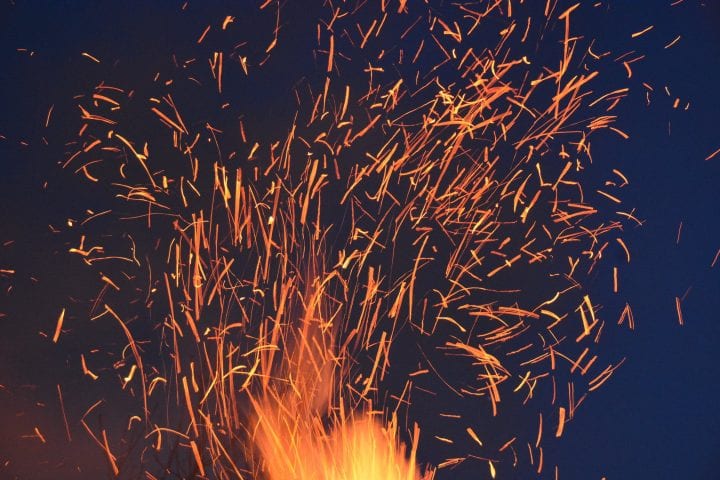
WITS Voices: Poetry as Disruption
March 13, 2019
By Christina Lee Barnes, WITS Writer-in-Residence
My first-ever WITS residency started off with a fire drill. I’d made it about halfway through my introduction when the loudspeaker cut me off with a garbled a reminder that students would file out to the field in the last ten minutes of class. Covert murmurs of excitement rippled through the room.
We carried on. For the rest of the lesson, the students were a bit shy, but polite… the energy ranged from curious to apathetic. And then, at the fire alarm’s shrill siren song, the mood shifted as students buzzed with the novelty of leaving class early, fleeing assigned seats, and heading for the field. The room pulsed with the thrill of this disruption.
I didn’t take their glee at escaping my lesson too personally. I can still remember a few of my own middle school fire drills and that delicious freedom of leaving the class early. You just can’t compete with that.
However, as I wrote my lessons each week, I realized that I’d been given the perfect metaphor for my goal during this residency. What if our weekly writing sessions could feel like that fire drill: a delightful disruption of the everyday routine, full of energy, movement, and potential for excitement and discovery?
It’s not a far-fetched goal, really. Poetry disrupts on many levels.
Teaching poetry always messes with the routine a bit, even in small ways. When a class reads a poem together, the “right” answer to a poem is so different from the “right” answer we’re taught to give in schools. The right answer to a poem, so often, is silence. Or maybe another question. Or maybe another poem. Or just a long sigh. Or a shout of joy, in a level-five voice.
And beyond just reading poetry, writing poetry asks them to dial into their emotions. It asks them to pay close attention to their interior world and to honor what they find there and then share it. That process is pretty counter-intuitive to the way we structure not just a school day, but much of our lives.
Like any residency, there were ups and downs. Some lessons moved us closer to that poetic energy than others. But on the day of our final reading, as each student practiced their performance with a partner before the slam began, I realized the mood of the classroom felt familiar, and it was pretty darn close to that crackling anticipation of the fire drill on the first day.
I took a minute to bask in the burble of the poetry these students had worked so hard to write, and to be thankful for the students’ hard work, bravery, and energy, and for the beautiful, disruptive power of poetry.

Christina Lee Barnes has recently relocated to Seattle after 10 years of teaching public school English in the Los Angeles area. She has published poetry and essays in the Seattle Times, Tin House’s “Broadside Thirty,” The Toast, Hoot Review, Pigeonholes, and elsewhere. She was chosen to attend the AROHO writing retreat at Ghost Ranch and earned an MFA in Poetry from SPU.